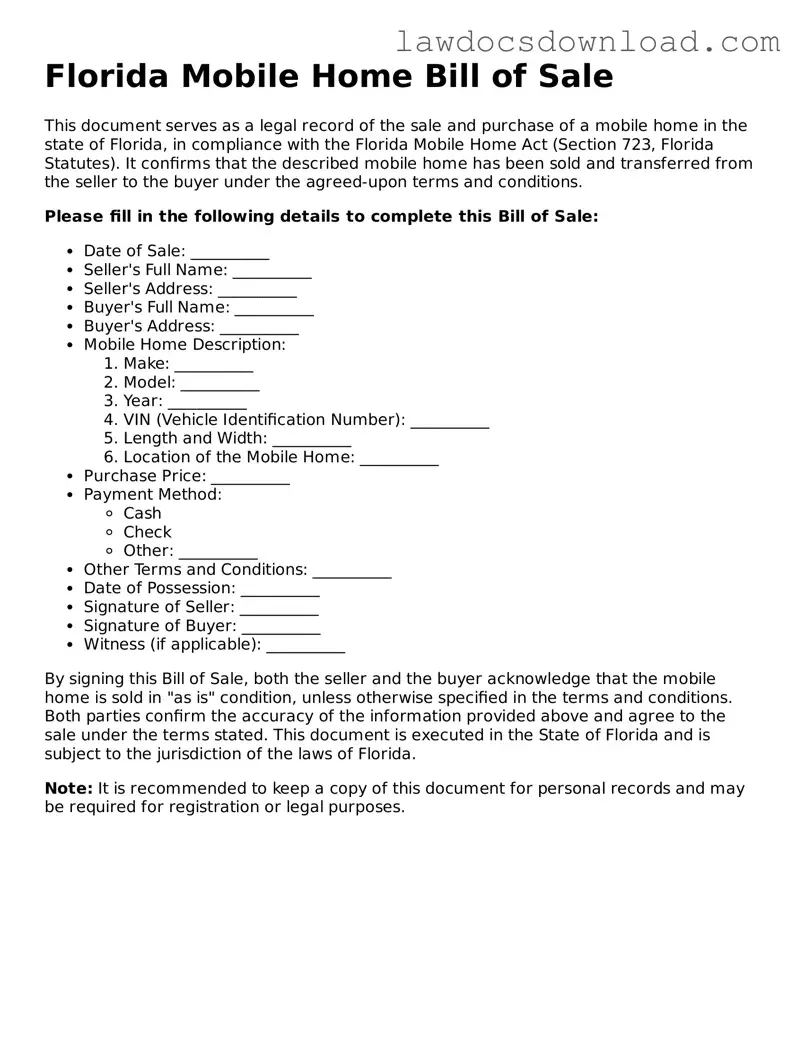The Florida Mobile Home Bill of Sale form shares similarities with a Vehicle Bill of Sale. Like its mobile home counterpart, the Vehicle Bill of Sale documents the transfer of ownership of a vehicle from one party to another. Both forms serve as a legal record of the sale, including details about the seller, buyer, and the item being sold. They also act as proof of purchase and may be required for registration purposes in their respective areas.
Likewise, a Boat Bill of Sale operates on the same fundamental principles as the Mobile Home Bill of Sale. It captures the transaction details between a buyer and seller, but focuses on the sale of a boat. Both documents are crucial for the registration process of the item in question, ensuring that the new ownership is recognized officially. They detail the specifics about the items sold, including identification numbers and sale price.
A General Bill of Sale is another document similar to the Mobile Home Bill of Sale. This versatile document is used for the purchase and sale of personal property, ranging from electronics to furniture. Although more general in scope, it still serves the same core purpose: to legally document the transfer of ownership and outline the terms of the sale, including the parties involved and the sale price.
Real Estate Sale Contracts, while more detailed, share common ground with the Mobile Home Bill of Sale as they both deal with property transactions. These contracts not only document the sale but also include comprehensive details about the property, terms, and conditions of the sale, obligations of the parties, and closing details. The key similarity lies in their fundamental purpose of recording a transaction agreement between buyer and seller.
The Manufactured Home Title or Certificate is closely related to the Mobile Home Bill of Sale. This document officially records ownership of a manufactured or mobile home and is necessary for legally establishing ownership at the state level. Like the Bill of Sale, it contains vital information about the owner, home, and any lienholders. The primary difference is that the title is an official government-issued document, whereas the Bill of Sale is a contract between two private parties.
A Firearm Bill of Sale is another document similar to the Mobile Home Bill of Sale in that it documents the sale and transfer of ownership of a specific item, in this case, a firearm. Both forms include details such as the make, model, and serial number of the item sold, alongside the personal information of the buyer and seller. They provide a legal record that can be used for registration or proof of ownership.
Finally, the Pet Bill of Sale is comparable to the Mobile Home Bill of Sale, though it deals with the sale of animals instead of property. Both forms ensure a mutual agreement has been reached about the sale, including price and description of the pet or mobile home. They are essential for documenting the transfer of ownership in a way that protects both parties involved in the transaction.

